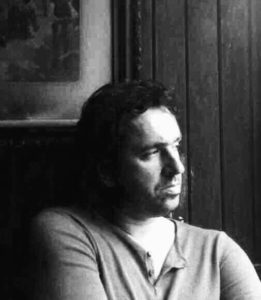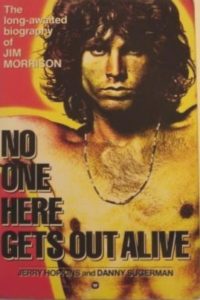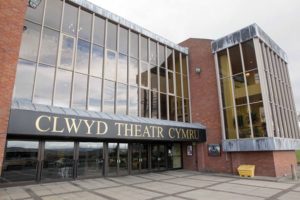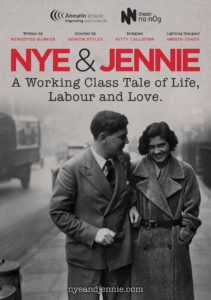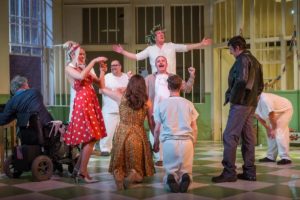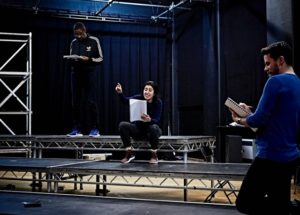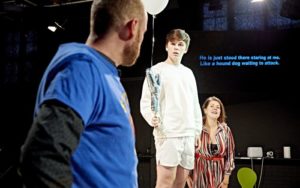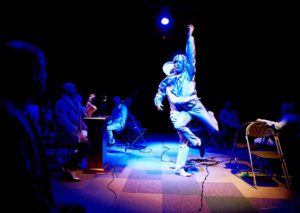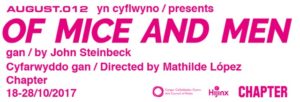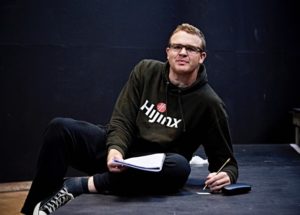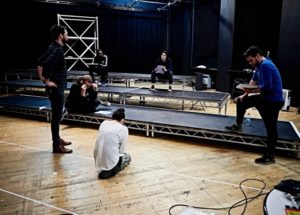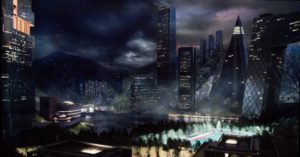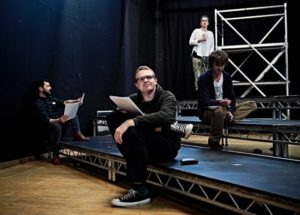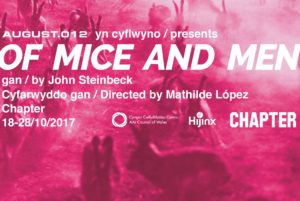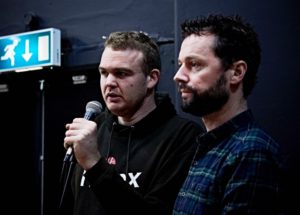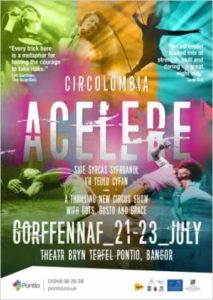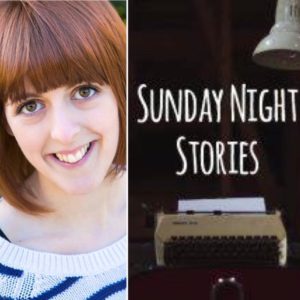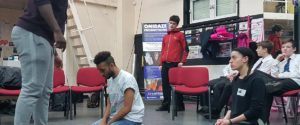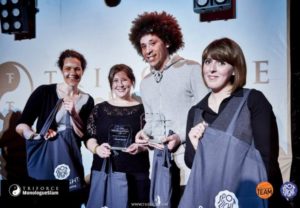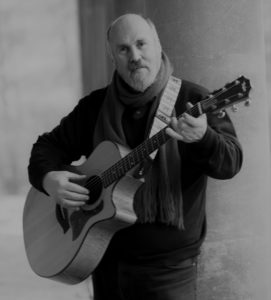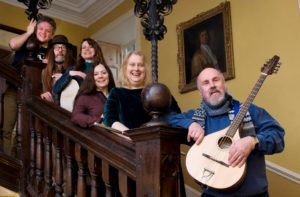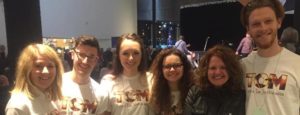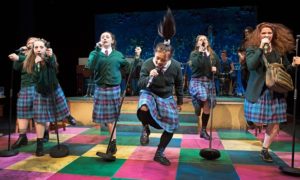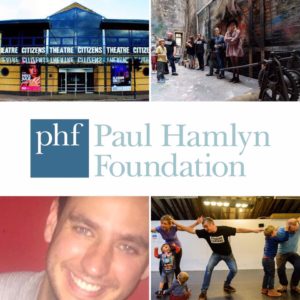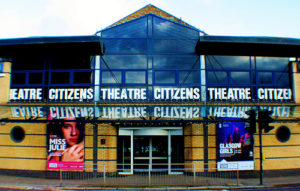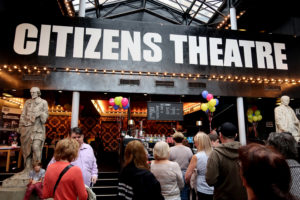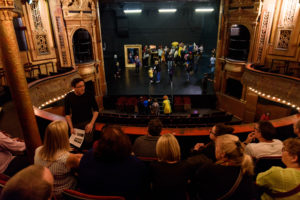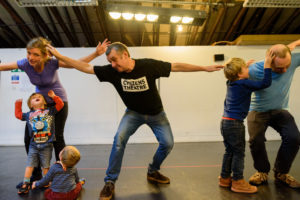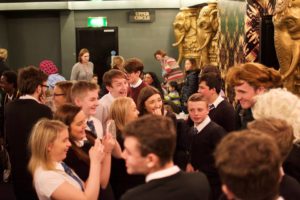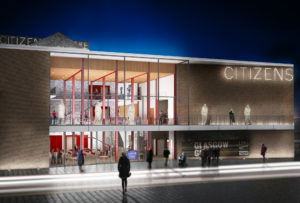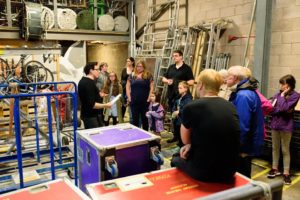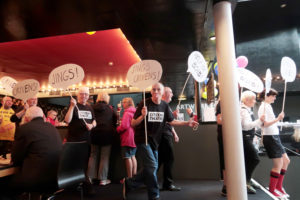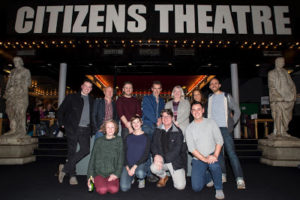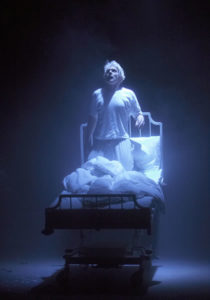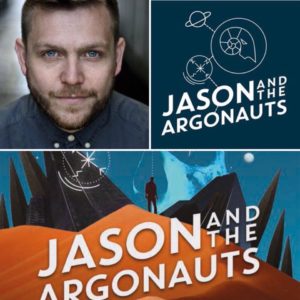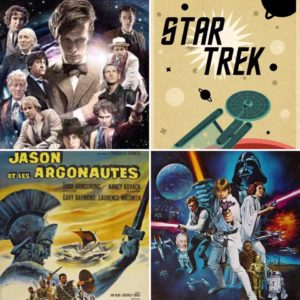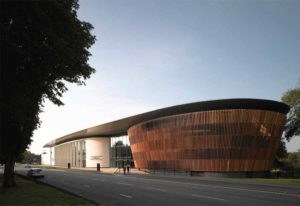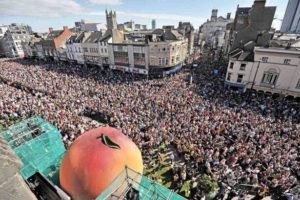
The Director of Get the Chance, Guy O’Donnell recently got the chance to chat with director Chris Durnall. We discussed his career to date, his new project focusing on the BSL aspects within Tribes by Nina Raine and his thoughts on theatre in Wales.
Hi Chris great to meet you, can you give our readers some background information on yourself please?
I’m Artistic Director of Company of Sirens and also produce work under the name Winterlight. Company of Sirens stage Welsh premiers of powerful contemporary plays. Productions include Anthony Neilson’s Stitching and The Censor, Philip Ridley’s Tender Napalm, Mercury Fur and Dark Vanilla Jungle, Manfred Karge’s Conquest of the South Pole and Jennifer Haley’s The Nether.
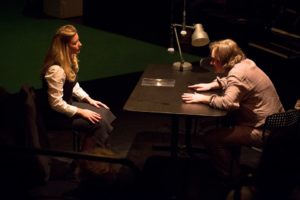
Chris in rehearsals for Jennifer Haley’s The Nether
Plus new plays by Welsh authors Ian Rowlands, Troyanne, and Sean Tyrone by Mark Ryan. Winterlight as our sister company specialise in new work that focuses on autism and disability issues. We have recently completed a trilogy of plays tracing the life of an autistic individual Matthews Passion 2013, Touch Blue Touch Yellow 2015 and Quiet Hands 2017.
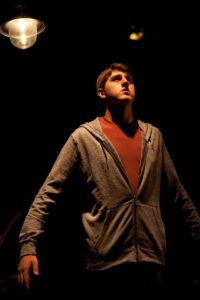
Matthews Passion
I was Artistic Director of Theatr Ffynnon for eight years working with adults with physical and learning difficulties. I also teach acting, deliver one to one sessions and freelance as a director. I was previously a professional actor for eighteen years.
So what got you interested in theatre and the arts?
Well once you get the call it’s difficult to consider doing anything else. I went to the theatre all the time when I was younger and devoured plays, often learning whole roles just for fun. When I went to drama college I was amazed by many student’s lack of interest or lack of curiosity. It was really disappointing. Having said that drama college was the happiest time of my life. I still love those people. The arts for me are split between those who dabble with varying degrees of success and those that have to do this without an option. Time and circumstances pretty soon determine which camp you are in.
Company of Sirens with the support of the Arts Council of Wales will be exploring the signing aspects of performance focusing on its use within the play Tribes by Nina Raine during October/November 2017 with support from Disability Arts Wales. Why have you chosen this as your latest production?
I wanted to explore the potential of non-verbal communication within performance. Non- verbal narrative. I believe drama lies between text and that words are often an avoidance technique to avoid and circumvent real communication.
The play Tribes fits the companies remit in terms of powerful new drama and also through the two deaf characters use of BSL within the play, helps support the other strand of my work which is about empowerment and the raising of awareness.
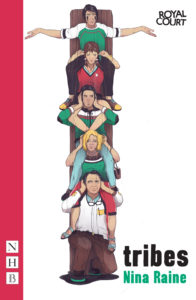
What personal knowledge do you have of theatre for deaf audiences?
My work with Theatr Ffynnon was concerned with giving a voice to the disempowered. We delivered projects through the medium of film, theatre, animation, visual art, music and poetry in order to explore routes of communication appropriate to our members and participants. The purity of their work moved me deeply and taught me a lot. We never patronised our members and listened to what they had to say as creative people. If I can merge this approach with professional actors working with a contemporary text I will be happy. In the play Tribes the deaf protagonist’s family communicate through cliché and verbal aggression. They speak in platitudes based on insecurity and often a sense of failure. Billy and his partially deaf girlfriend Sylvia communicate directly through gesture, eye contact and body language. We recognise the adage “actions speak louder than words”
Get the Chance works to support a diverse range of members of the public to access cultural provision Are you aware of any barriers to equality and diversity for either Welsh or Wales based artists/creatives?
I worry that work may be compromised by having to fit into funding priorities. It’s a question of approach. There has been a surge of work and support encouraging equality and diversity and that has been wonderful. I do believe that within this framework there should be scope for “arts for arts sake” whereby funders say we like your work, we trust your intent, go and create. I feel those times may be gone forever due largely to our culture of accountability.
There are a range of organisations supporting Welsh and Wales based artists and creatives, I wonder if you feel the current support network and career opportunities feel ‘healthy’ to you?
See above. Its great the doors are opening up but I do believe any art form moves forward through the taking of risks and a culture of experimentation. Diversity need not suffer but our artists need full creative freedom in order to create the extra – ordinary.
If you were able to fund an area of the arts in Wales what would this be and why?
Fund the risk takers and chance takers. Back the artists themselves and allow them the freedom to create
What excites you about the arts in Wales? What was the last really great thing that you experienced that you would like to share with our readers?
The amount of young companies trying to work within a difficult culture gives me hope.
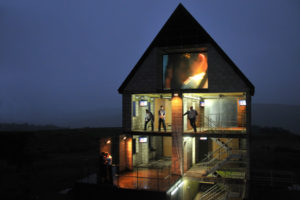
Pearson and Brooks, The Persians, National Theatre Wales.
The work of Pearson and Brooks (The Iliad and the Persians) for National Theatre Wales. Directors who try to break the mould like Mathilde Lopez. Goodcopbadcop’s experiments. Writers such as Ian Rowlands, Tim Rhys and Gary Owen are producing great work. A thriving experimental dance scene
Many thanks for your time Chris.

